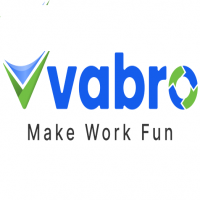The Modern Project Management Solution: Driving Efficiency and Innovation in 2025

In the digital era, organizations face increasing complexity: distributed teams, rapid technological shifts, evolving client demands, and a relentless need for innovation. At the heart of meeting these challenges lies a robust project management solution—a toolset that transforms scattered workflows into orchestrated success. As we move into 2025, the maturity and capabilities of project management solutions have become central to organizational competitiveness.
Why Project Management Solutions Matter More Than Ever
Effective project management delivers more than just on-time and on-budget completion. It aligns teams, clarifies objectives, provides transparency, and fosters agility—the foundation for sustainable growth and innovation. With remote and hybrid work models now the norm, seamless project coordination is essential for:
Enhancing Team Collaboration: Breaks down silos and unifies diverse talents around common goals.
Managing Complexity: Organizes multifaceted projects with multiple dependencies, stakeholders, and deliverables.
Improving Accountability: Assigns ownership and ensures clear responsibility for every task.
Data-Driven Decision Making: Offers real-time analytics and reporting for smarter strategic choices.
Key Features of a Project Management Solution in 2025
A modern project management solution isn’t just a glorified to-do list. Look for these core features to enable high-performance, scalable project delivery:
Integrated Workflows: Combine task management, time tracking, document sharing, and communication in one platform to centralize work.
Customizable Dashboards: Visualize progress, set key performance indicators, and display data important to your industry or function.
Automation and AI Capabilities: Automate repetitive tasks, trigger notifications, and leverage generative AI for project documentation and smart suggestions.
Resource Allocation: Track, assign, and balance workloads for optimal team performance.
Advanced Collaboration Tools: In-built chat, file storage, comment threads, and external integrations eradicate information silos.
Robust Permission Controls: Manage access down to individual projects, files, or tasks—essential for data security and compliance.
Seamless Integration: Compatible with CRM, HR, and other enterprise systems to provide a unified data ecosystem.
Mobile Access: Real-time project visibility and task updates from any device, providing flexibility for distributed teams.
Template Library: Pre-built and modifiable project plan templates accelerate setup and ensure consistency.
Benefits of Adopting a Cutting-Edge Project Management Solution
1. Increased Productivity: Automation of administrative processes liberates talent, allowing teams to focus on creative and strategic activities.
2. Greater Transparency: All stakeholders can see real-time progress, identify roadblocks early, and adjust priorities proactively.
3. Enhanced Agility: Rapidly shift workflows, reassign resources, and pivot strategies based on changing market or client needs.
4. Improved Client Satisfaction: On-time delivery, clear communication, and early issue identification foster deeper partnerships and repeat business.
5. Cost Efficiency: Reduces overhead by consolidating tools and improving the efficiency of cross-functional teams.
Choosing the Right Project Management Solution
Not all platforms fit every business. Here’s a side-by-side look at some leading project management solutions in 2025 and their standout features:
Solution Best For Key Features
Vabro Agile, cross-functional AI automation, CRM & HR integration, team chat
Asana Scalable enterprises Visual timelines, strong automation, API ecosystem
Jira Software teams Advanced SCRUM/Kanban boards, dev-tool integration
Monday.com Custom workflows Modular dashboards, multi-industry use
ClickUp All-in-one productivity Goal management, docs, time tracking, templates
Your selection should be driven by your team structure, technical stack, and unique project lifecycle requirements.
How AI Is Revolutionizing Project Management
Artificial intelligence, machine learning, and smart automation are no longer optional add-ons—they are core drivers of project success. AI-enhanced project management solutions now:
Produce Instant Project Documentation: Generative AI drafts meeting summaries, user stories, and reports in seconds.
Optimize Resource Allocation: Machine learning analyses utilization and suggests the best task assignments.
Predict Project Risks: Algorithms flag delays and dependencies, alerting managers before issues escalate.
Automate Recurring Tasks: Reduce overhead with auto-reminders, status updates, and workflow triggers.
Deliver Data-Driven Insights: AI surfaces trends and actionable recommendations for continuous improvement.
The result: less busywork, more time for creative problem-solving, and projects that thrive even under shifting business conditions.
Real-World Impact: Case Study Highlights
Many organizations have transformed their operations through comprehensive project management solutions. For example:
A Global Marketing Firm: Used a unified solution to coordinate campaigns across eight countries, reducing launch times by 30%.
A Software Development Agency: Leveraged AI-driven sprint planning and bug tracking, resulting in 25% fewer missed deadlines.
A Mid-size Manufacturer: Integrated project tools with CRM and HR platforms, aligning production and staffing, and cutting overtime costs by 18%.
Best Practices for Implementation
Adopting a new project management solution is a strategic investment. Here are actionable steps for a smooth rollout:
Involve Stakeholders Early: Get buy-in from team members, project managers, and executives for higher adoption rates.
Prioritize Training: Ensure all users understand workflows, responsibilities, and new platform features.
Start with a Pilot Project: Test on a small scale, gather feedback, then scale up with confidence.
Customize Workflows: Leverage templates and automation that fit your business processes, not the other way around.
Integrate Across Systems: Connect your solution to tools your teams already use for seamless operations.
The Future of Project Management Solutions
Looking forward, we can expect even deeper AI integration, more personalized user experiences, smarter automation, and expanded ecosystem connectivity. The project management landscape will increasingly value:
Remote/Hyrbid Optimization: Mobile-first tools and synchronous/asynchronous collaboration features.
Outcome-Based Planning: Measuring what matters most—business value and strategic impact.
Sustainability and Compliance Monitoring: Tracking ESG, diversity, and data privacy impact within project workflows.
Gamification and Engagement: Incentivizing participation and learning through badges, leaderboards, and progress stats.
Conclusion
A next-generation project management solution is not just a tool, but a strategic enabler. It empowers teams to innovate, managers to make data-driven decisions, and organizations to deliver higher value with less friction. Whether you are scaling a start-up or modernizing an enterprise, investing in the right project management solution will drive your projects—and your people—toward lasting, measurable success.
Note: IndiBlogHub features both user-submitted and editorial content. We do not verify third-party contributions. Read our Disclaimer and Privacy Policyfor details.







